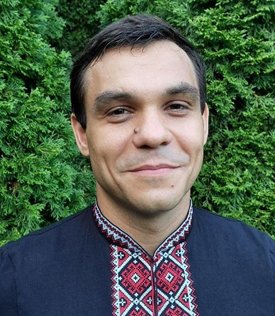Shales as barriers for fluid flow in underground storage
A Warren Distinguished Lecture with
Roman Y. Makhnenko
Civil and Environmental Engineering
University of Illinois at Urbana-Champaign
Abstract
Tight shale-like formations are often considered as barriers for fluid flow in geo-energy projects, such as CO2 and H2 storage or deep disposal of nuclear waste. The appropriate shale formations should have high clay content and dominant pore sizes on the order of nanometers. Their sealing capacity is determined by high non-wetting fluid entry values, low permeability, and high ductility. The characterization of the hydro-mechanical behavior of shales is involved even when saturated with just one fluid because of long experimental times and high sensitivity to environmental factors such as temperature and pore fluid chemistry. The unsaturated poromechanical properties are even more difficult to measure since the solid, pore, and fluid compressibility should not be neglected and the degree of saturation should be controlled. Makhnenko discusses the results of a comprehensive laboratory characterization of a few shale-like materials with different porosity, permeability, and dominant grain and pore sizes. He is investigating the effect of mineral composition and presence of heterogeneities, including fractures, on sealing capacity of shales under varying effective mean stress, pore pressure, and temperature. Makhnenko presents the implications of using these shales as barriers for advective and channeled fluid flow, including CO2 injection, for representative in-situ conditions.
Speaker
Roman Y. Makhnenko is an assistant professor in the Department of Civil and Environmental Engineering at the University of Illinois at Urbana-Champaign. Makhnenko has a background in mechanics and applied mathematics. He obtained his MS (2009) and Ph.D. (2013) degrees in geological and civil engineering from the University of Minnesota Twin Cities. From 2013 to 2016, Makhnenko worked as a postdoctoral researcher and lecturer at the Swiss Federal Institute of Technology in Lausanne (EPFL, Switzerland) on the project related to assessment of geological storage of CO2. Currently, Makhnenko is developing a rock mechanics program at Illinois that includes modern high-pressure/high-temperature rock testing facilities and new graduate and undergraduate courses on the topic. His group is working on the geomechanical testing and modeling for geo-energy projects such as CO2 and H2 storage and shallow geothermal systems.
